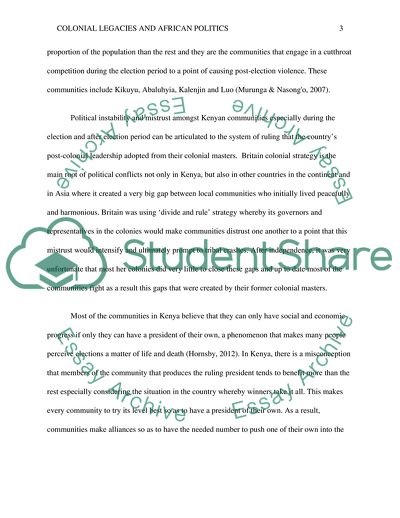Cite this document
(Ghana's current political situation is a result of colonial legacies Research Paper, n.d.)
Ghana's current political situation is a result of colonial legacies Research Paper. https://studentshare.org/politics/1833814-ghanas-current-political-situation-is-a-result-of-colonial-legacies
Ghana's current political situation is a result of colonial legacies Research Paper. https://studentshare.org/politics/1833814-ghanas-current-political-situation-is-a-result-of-colonial-legacies
(Ghana'S Current Political Situation Is a Result of Colonial Legacies Research Paper)
Ghana'S Current Political Situation Is a Result of Colonial Legacies Research Paper. https://studentshare.org/politics/1833814-ghanas-current-political-situation-is-a-result-of-colonial-legacies.
Ghana'S Current Political Situation Is a Result of Colonial Legacies Research Paper. https://studentshare.org/politics/1833814-ghanas-current-political-situation-is-a-result-of-colonial-legacies.
“Ghana'S Current Political Situation Is a Result of Colonial Legacies Research Paper”. https://studentshare.org/politics/1833814-ghanas-current-political-situation-is-a-result-of-colonial-legacies.


